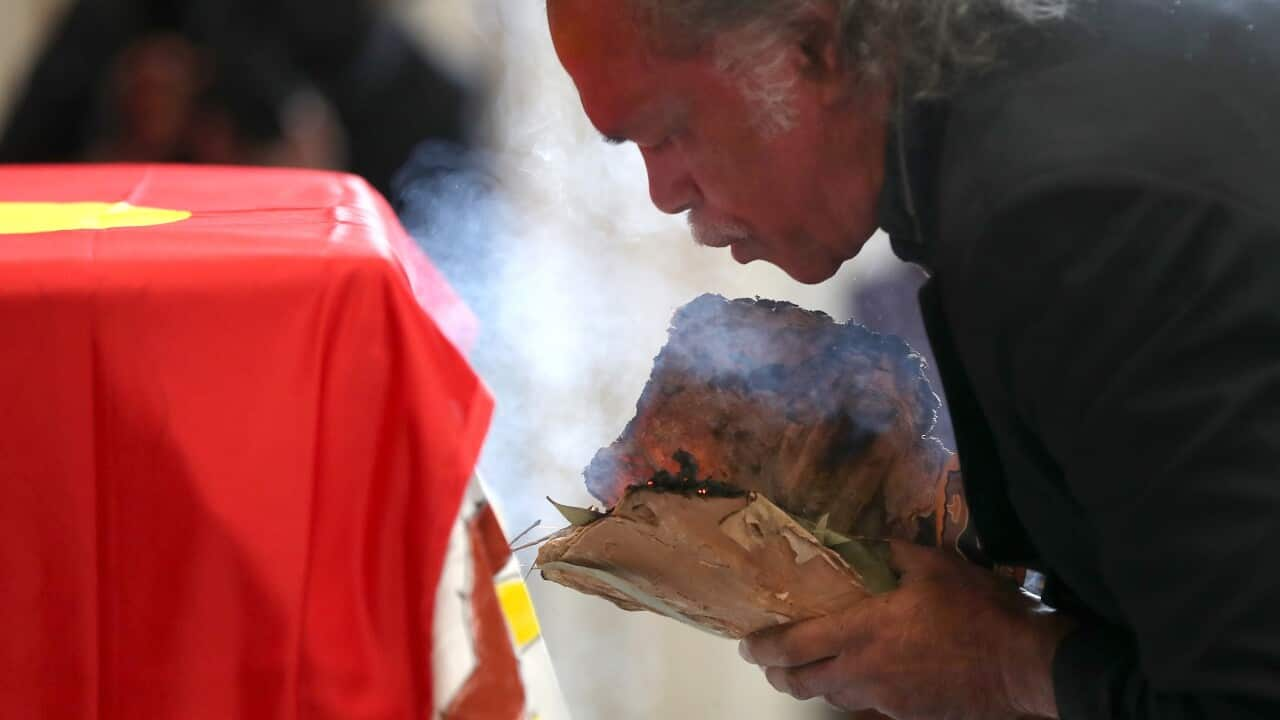More than 50 Aboriginal ancestral remains will be returned to their homelands from five different German institutes by the end of the month as part of the Australian Government's work to facilitate the return of Aboriginal and Torres Strait Islander ancestral remains from overseas collections.
The first ceremony was hosted Tuesday in the Germany city of Munich where the Munich Five Continents Museum handed back the remains of a Gimuy Walubara Yidindji King to representatives from the Yidindji nation located around modern-day Cairns, including a descent of the King, Yidindji Elder Gudju Gudju.
The remain had been in German possession since 1889.
The Yidindji King's remains were discovered in 1876 by German businessman Leopold Sachs who took the King to Sydney and unsuccessfully attempted to sell the remains.
Eventually the remains were given to the director of the Royal Ethnographic Collection, now known as the Museum of Five Continents. The remains of the King's wife were also stolen but have yet to be located.
The German Minister of Fine Arts, Bernd Sibler admits it was likely the King's burial ceremony was disrupted when his remains were taken more than 140 years ago, but said returning the remains is a "central task of cultural policy".
"The ultimate goal must be to find appropriate solutions for each individual case. An important role is played in particular by the dialogue with the representatives of the companies of origin," Mr Sibler said in a statement. The University of Freiburg will hand over eight more remains on 12 April, and the Linden Museum will hand over another two. An Australian government representative will bring them back to Australia for further examination to identify their First Nation of origin.
The University of Freiburg will hand over eight more remains on 12 April, and the Linden Museum will hand over another two. An Australian government representative will bring them back to Australia for further examination to identify their First Nation of origin.

Yidindji representatives having their traditional smoking cleanse during the ceremony in Germany. Source: Supplied
On 15 April, Yawuru representatives from Broome in Western Australia will collect seven remains from the State Ethnographic Collections during a ceremony at the Australian Embassy in Berlin.
The other 25 remains will be returned to Australia for further identification before the ancestors are returned to Country. By the end of the month, the total of remains returned will be 53 .
For more than 150 years First Nation's ancestral remains and secret sacred objects have been removed from Country and placed in universities, museums and private collections both in Australia and overseas.
The Advisory Committee for Indigenous Repatriation is an all-Indigenous committee with representatives from Queensland, the Torres Strait Islands, South Australia and the Northern Territory.
It's estimated that around 1,500 Aboriginal and Torres Strait Islander ancestral remains have been returned in the past 30 years.











